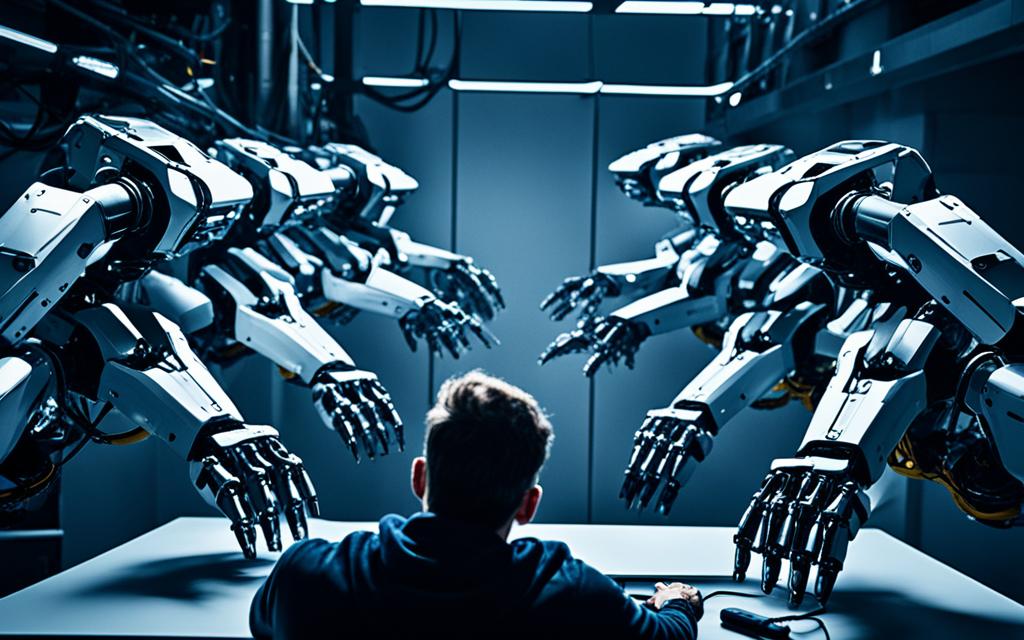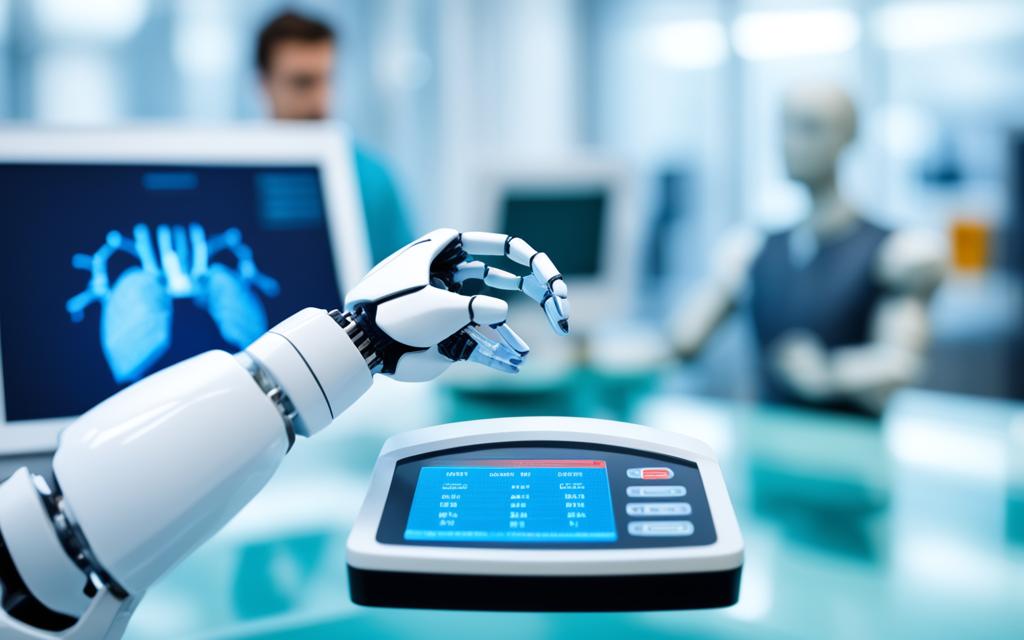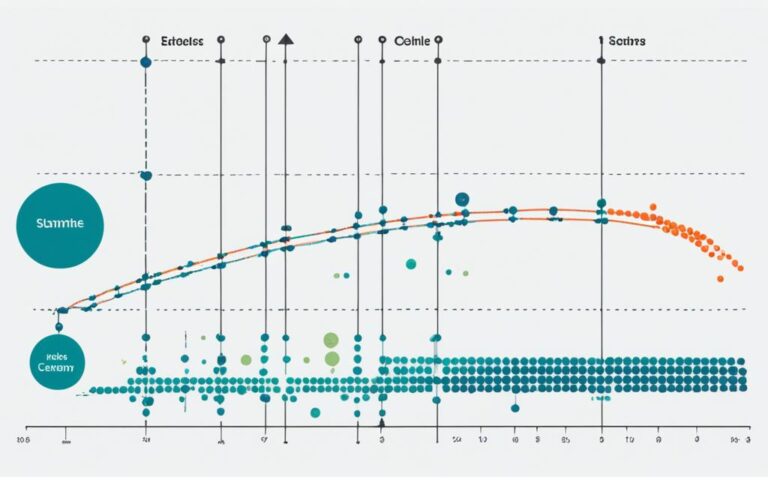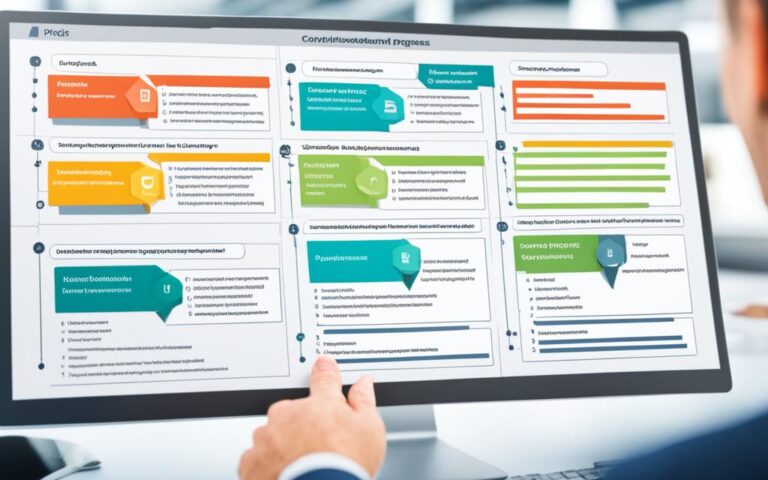Artificial Intelligence: Challenging the Fear of Automation
With the rapid advancements in AI development and automation technologies, there is no denying that our concept of work is being transformed. However, alongside the excitement and possibilities, there is also a palpable fear of job displacement and AI surpassing human intelligence. But let’s not jump to conclusions just yet!
Artificial intelligence and automation have the potential to reshape industries, enhance productivity, and address pressing societal challenges. Instead of fearing the rise of the machines, we should embrace the opportunity to collaborate with intelligent machines and explore the endless possibilities they bring.
So, let’s dive into the transformative impact of AI and automation, debunking the fear surrounding their development, as we uncover the true potential they hold for the future of work.
The Benefits of AI Automation in Business and Society
AI and automation technologies are accelerating progress in various sectors, driving business transformations and addressing societal challenges. The potential of AI to revolutionize processes and enhance productivity is unmatched, leading to personalized services and improved decision-making. This technology opens doors for breakthrough innovations and advancements, particularly in areas such as climate change and healthcare.
Table: Examples of AI’s Contribution to Business Transformations and Societal Challenges
| Business Transformations | Societal Challenges |
|---|---|
| 1. Streamlining supply chain management | 1. Developing AI-powered solutions for climate change mitigation |
| 2. Enhancing customer experience through personalized recommendations | 2. Revolutionizing healthcare with AI-assisted diagnostics |
| 3. Improving decision-making through AI analytics | 3. Addressing social inequality through data-driven policies |
Despite the potential, there are obstacles to overcome. Technical limitations and adoption challenges pose significant barriers to widespread AI deployment. However, advancements in AI techniques and regulations are actively addressing these obstacles, fostering a conducive environment for accelerated progress. By leveraging AI automation, businesses can unlock transformative opportunities, improve efficiency, and contribute to economic growth.
AI automation offers unparalleled progress, providing businesses with the means to address societal challenges while transforming industries. The key lies in overcoming obstacles and embracing the potential of AI, driving us towards a future of innovation and increased productivity.
The Future of Work Alongside AI
As AI systems continue to advance in their capabilities, there is a growing concern about the impact on the future of work. Many worry that automation will lead to job displacement and a wave of unemployment. However, it’s important to recognize that AI automation also creates new opportunities and reshapes the job landscape.
While routine and repetitive tasks may be automated by AI, this opens up emerging job opportunities in AI development, maintenance, and support. Industries will require skilled professionals who can work alongside AI systems to ensure their optimal performance and ongoing improvement.
The future of work will not be a battle between humans and AI, but a collaboration where humans and AI systems complement each other’s strengths. AI has the potential to free up human workers from mundane tasks, allowing them to focus on more creative, strategic, and complex endeavors.
This shift in job roles emphasizes the importance of reskilling and upskilling programs to equip workers with the necessary skills to adapt to this evolving landscape. By investing in training and education, individuals can stay relevant and seize new opportunities that emerge.
It is crucial for governments and organizations to take a proactive approach in supporting workers through retraining programs and policies. This includes offering resources and incentives for reskilling, promoting a human-centered approach to automation, and ensuring that workers are not left behind in the face of technological advancements.
In conclusion, while there are valid concerns about job displacement, the future of work alongside AI presents a realm of possibilities. By embracing the collaboration of humans and AI, investing in reskilling initiatives, and adopting a human-centered approach to automation, we can navigate the future of work with confidence and reap the benefits that AI brings.
New Job Opportunities in the Age of Automation
With the rise of AI and automation, new job opportunities are on the horizon. Here are a few emerging roles:
- AI Data Analyst: Mining and analyzing data to derive insights and optimize AI algorithms and models.
- AI Ethics Consultant: Ensuring that AI systems are developed and deployed ethically, considering privacy, bias, and fairness aspects.
- AI Trainer: Teaching AI systems how to perform specific tasks or recognize patterns through supervised learning.
- AI Solutions Architect: Designing and implementing AI solutions tailored to specific business needs and challenges.
As the field of AI continues to evolve, these roles will become increasingly vital to ensure the successful integration of AI technologies into various industries.
Conclusion
As the impact of AI automation continues to grow, it is essential for individuals and organizations to take a proactive approach in managing this paradigm shift. Rather than succumbing to fear or resisting change, embracing the opportunities presented by AI is key.
Adapting to AI technologies requires acquiring new skills and knowledge. Investing in reskilling and upskilling programs will empower individuals to stay relevant in the evolving job market. By taking a human-centered approach, we can ensure that the benefits of automation are harnessed in a way that enhances job satisfaction and employee well-being.
Creating supportive policies and environments is equally important. Embracing AI technologies involves striking a balance between efficiency and teamwork. By fostering an environment that encourages collaboration and values human expertise, we can truly leverage the power of AI to drive innovative solutions and address complex challenges.
Managing the impact of AI requires vigilance and adaptability. By proactively embracing the opportunities presented by AI automation, we can navigate the future of work with confidence and optimism. Let us embrace this technological revolution, empowering ourselves and our organizations to thrive in the ever-changing digital landscape.
FAQ
What is artificial intelligence (AI) development?
AI development refers to the creation and advancement of intelligent machines that can simulate human intelligence and perform tasks with minimal or no human intervention. It involves the development of algorithms, learning models, and systems that enable machines to analyze data, make decisions, and learn from experience.
Why is there fear surrounding automation?
Automation is often associated with concerns about job displacement and the idea that AI will surpass human intelligence, rendering humans obsolete. These fears arise from the uncertainty and lack of understanding about the transformative impact of AI and automation technologies.
How will AI automation impact the future of work?
AI automation is expected to automate routine and repetitive tasks, which may lead to job displacement in certain industries. However, it also presents opportunities for collaboration between humans and AI. The future of work will involve humans working alongside AI systems, where AI augments human capabilities and frees up time for more creative and strategic tasks.
What are the emerging job opportunities in AI?
The development and deployment of AI technology create new job opportunities in fields such as data science, machine learning, AI research and development, AI system maintenance, and support. These roles require specialized skills and knowledge in AI technologies.
Why is reskilling important in the context of AI?
Reskilling is crucial to ensure individuals can adapt to the changing job landscape and stay relevant in the AI-driven future of work. As AI automates certain tasks, individuals need to acquire new skills that align with the evolving job market. Reskilling programs help individuals transition into new roles and industries where their skills are in demand.
How can organizations support workers in the age of automation?
Organizations can support workers by implementing proactive measures such as providing reskilling and upskilling programs, creating policies that prioritize the well-being of employees in the face of automation, and fostering a human-centered approach to automation. This involves considering the impact on workers and ensuring a smooth transition to the future of work.
What is the importance of a human-centered approach to automation?
A human-centered approach to automation emphasizes the need to prioritize the well-being and empowerment of humans in the integration of AI and automation technologies. It involves considering the ethical implications, addressing potential challenges, and ensuring that AI systems amplify human capabilities rather than replace them.
How can we embrace the opportunities presented by AI?
Embracing the opportunities presented by AI involves investing in reskilling and upskilling programs to acquire the necessary skills for the AI-driven future. It also requires creating supportive policies and environments that foster innovation, collaboration, and the integration of AI technologies. By proactively adapting to AI, individuals and organizations can harness its potential to drive productivity and create positive change.










